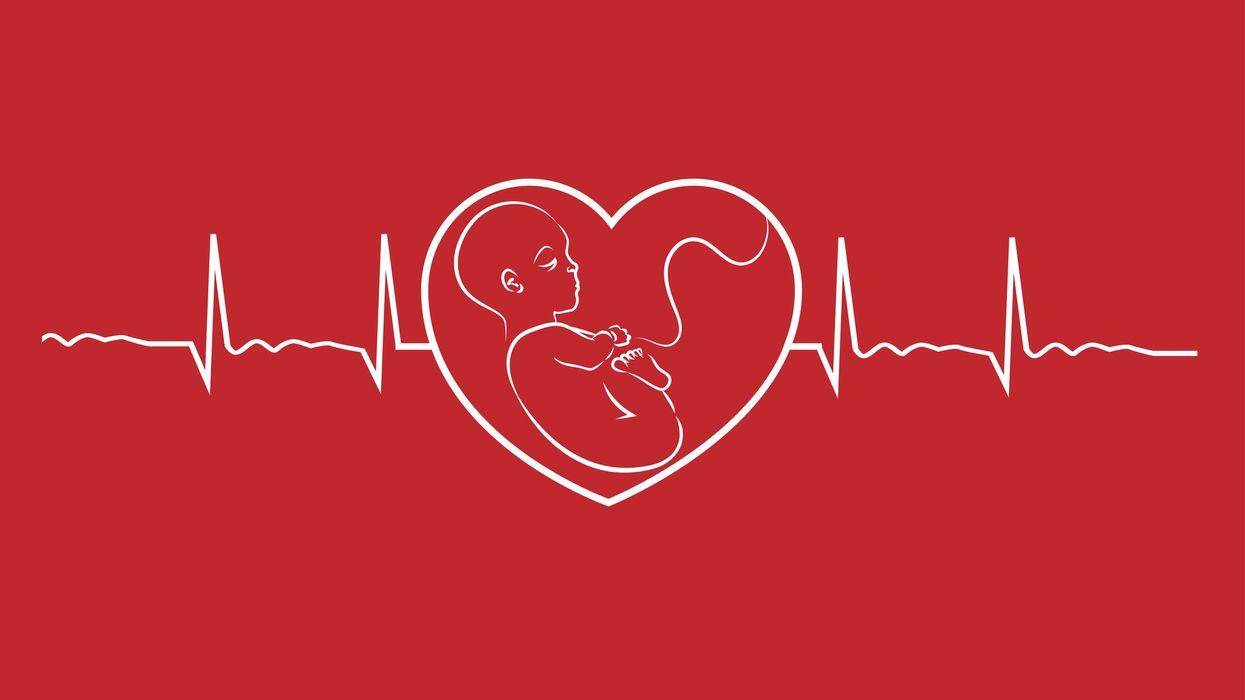
CarlaNichiata/Getty Images

Democrats argue that Republicans oppose reproductive rights for women. In reality, the GOP is fighting for the rights of unborn children against the pro-death position.
On the question of allowing abortions at any time, an adult voter generally takes a pro-life or pro-choice position. But from the standpoint of the unborn child, the choice will lead to either life or death. After the Supreme Court’s decision in Dobbs v. Jackson Women’s Health Organization, which overturned Roe v. Wade and held that abortion is not a constitutional right, each state is grappling with the right policy.
Americans by and large do not favor taking a life. The question, which can’t be answered definitively, is: When is the unborn child considered a life? At what point does the unborn child enjoy the right to “life, liberty, and the pursuit of happiness”?
Since the country is sharply divided, we’re left in search of a compromise position.
Many pro-life Americans argue that life begins at conception. Some argue that life begins when a heartbeat can be detected, roughly at six weeks. Others say the fetus should be considered a life when it can survive outside the womb, which is at roughly 23 weeks. Some argue that life does not begin until after the child leaves the womb.
One proponent of allowing abortion up until birth said to me, “Life begins when the child takes their first breath and ends when they take their last.” The unborn fetus has no rights while still in the womb, according to this view.
If that’s the case, then abortion should be allowed up until the time of birth. But few Americans support that position. Even those who favor late-term abortions believe very late-term abortions should not be allowed except under extraordinary conditions.
Each state can now set its own abortion policy. States like California, Illinois, and New Jersey tend to set policies that favor the mother at the expense of the unborn child. States like Florida and Texas believe the fetus has rights at some point during pregnancy.
The pro-choice supporters focus the debate not on the child but rather on the mother. The mother has the right to choose the fate of the unborn child well into the pregnancy. They say this ensures reproductive health for the mother, although it completely ignores the rights of the unborn child.
Prior to the reversal of Roe v. Wade, the consensus view seemed to be that when the fetus can survive outside the womb, it has a right to life. Very religious people argue those rights begin much earlier, perhaps at conception, so they were never happy with the 23-week limit.
Since the country is sharply divided, we’re left in search of a compromise position — although any compromise will vary greatly from state to state.
Politically, the Democrats tend to win the debate by focusing on the rights of the mother and completely ignoring any rights the unborn child may have. Republicans try to focus on the rights of the unborn child. Unfortunately, unborn children don’t vote.
Allowing abortion on demand up until the 15th week of pregnancy is a compromise position. While very religious Americans would not favor this, it is a compromise that most Americans would support.
Perhaps the GOP should also focus the debate on the unborn child so that if Democrats support the “pro-choice” position, they are really saying they are pro-death.
That could be a winning issue for the GOP. As recently as the 2022 elections, Democrats used the choice argument to win, noting that Republicans wanted to take away reproductive rights from women. In reality, the GOP just wants to combat the pro-death position by recognizing the rights of the unborn child.
Michael Busler